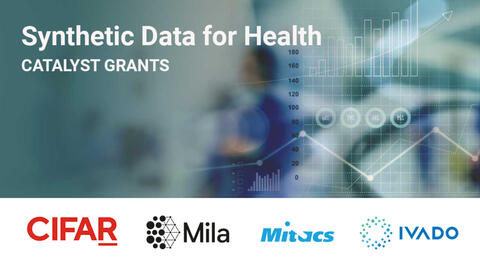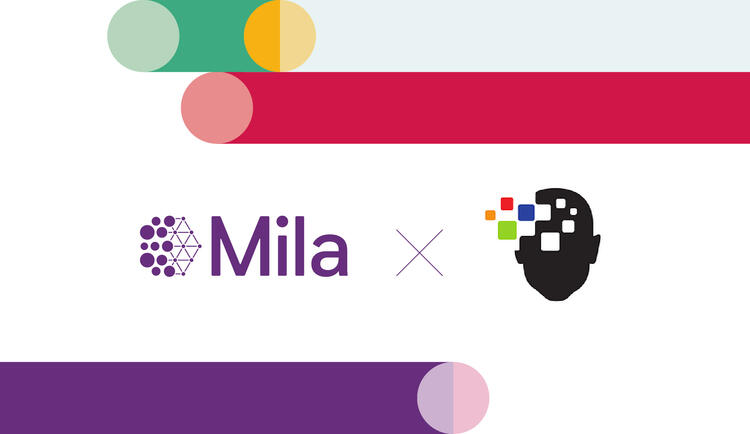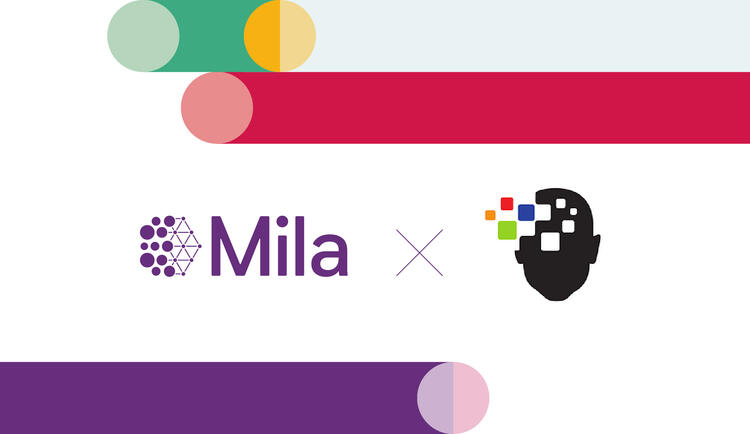
Four collaborative health research projects using synthetic data have been selected to receive nearly $400,000 in funding, as an outcome of a synthetic data for health symposium co-organized by CIFAR, IVADO and Mila.
The November 2021 symposium brought together more than 250 attendees including Canadian and international experts to review case studies on synthetic data, including uses in medical imaging, clinical data and genomics. A call for proposals followed, with the successful proposals to be supported by the CIFAR catalyst grant program, with Mila and Mitacs providing additional funds.
To be completed within one year, the projects include research and applications of machine learning to generate synthetic data sets based on real-world data. They explore different AI methods to generate synthetic imaging data and clinical data while ensuring fidelity and patient privacy.
The four projects announced today are:
- Privacy-preserving generative models for retina image synthesis used for diagnosis purposes. Lead: Xiaoxiao Li, University of British Columbia in partnership with Roche.
- Privacy-preserving data synthesis of a cohort to study and stimulate research on the opioid crisis in Canada. Lead: Sébastien Gambs, Université du Québec à Montréal in collaboration with the Data Science Division at Statistics Canada.
- Generation of confidentiality-preserving synthetic data from prescription drug consumption administrative databases for the analysis of drug use in the Quebec population. Lead: Christian Gagné, Université Laval in partnership with The Régie de l’assurance maladie du Québec.
- A generator capable of creating images and associated labels for different types of images such as retina images, skin lesions and histopathology. Co-leads: Raymond Ng & Mathias Lecuyer, University of British Columbia Data Science Institute in partnership with Microsoft Research.
Quotes:
“Collaboration across sectors, from academic researchers to those working in the private sector or in healthcare settings, is absolutely essential to creating innovative, effective and transformational AI solutions for better diagnostics and patient care.”
Elissa Strome, Executive Director, Pan-Canadian AI Strategy, CIFAR
“By bringing together academic researchers and industrial researchers to address the opportunities and challenges around the use and deployment of synthetic data in healthcare, we are opening the door to novel strategies for the use of AI in the health sector.”
Catherine Saine, Director, Partnerships and Strategy, Mila
“AI algorithms and intelligent systems hold great promise in the health sector. Facilitating data access while preserving privacy is key to respecting the wishes of citizens as we develop robust and responsible AI.”
Barbara Decelle, Health Research Advisor, IVADO
“We’re excited to see the results of these innovative solutions that use synthetic data to preserve privacy while enabling the large volume of data required for AI to speed the discovery of health solutions.”
Lilia Jemai, National Manager Artificial Intelligence, Mitacs




